At-a-glance: Scottish government cabinet
- Published
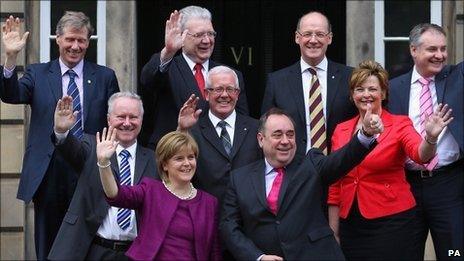
First Minister Alex Salmond has announced a new, larger Scottish cabinet, in the wake of the SNP's landslide election victory.
Here is a look at the nine-strong senior ministerial team.
Alex Salmond - first minister
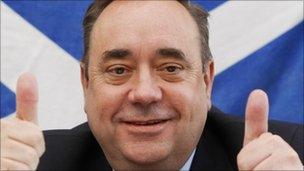
After decades in the political spotlight, Alex Salmond has come to be regarded as one of the most able politicians of his generation.
He was already a high-profile politician when he made history after being elected as Scotland's first Nationalist first minister in 2007, following many ups and downs for the SNP.
He became leader of his party for the first time in 1990, while MP for Banff and Buchan, stepping down after 10 years but making a comeback in 2004.
In 2011, Mr Salmond led the SNP to its greatest success yet, not only winning the Scottish election, but an outright majority at Holyrood.
As first minister, the one-time civil servant heads the devolved government and is responsible for policies, constitutional affairs and promoting and representing Scotland.
Nicola Sturgeon - deputy first minister and health
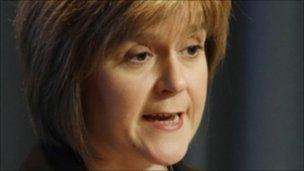
Not everybody agrees with Nicola Sturgeon's politics, but not many question her unwavering commitment to life as an elected politician.
Ms Sturgeon - who signed up with the SNP as a teenager - has stuck with the party through good times and bad, climbing the ranks to become Scotland's deputy first minister and health secretary.
The former solicitor's direct style has earned her the title of "nippy sweetie", but has attributed this attitude to the seriousness with which she approaches her job.
Ms Sturgeon became deputy SNP leader on a joint campaign ticket with Alex Salmond, serving for a time as the party's "Holyrood leader", before Mr Salmond's return to the Scottish Parliament.
She came under fire in the last parliament for writing a letter of support for her constituent, Abdul Rauf, who defrauded Department of Work and Pensions of £80,000.
Ms Sturgeon told MSPs she had acted in good faith but accepted the wording of her letter was "wrong".
Despite the incident, Ms Sturgeon has proved to be a popular figure in the party and has seen through the abolition of prescription charges and declared war on hospital infections.
She emerged victorious on election night by taking the new seat of Glasgow Southside - a close fight between the SNP and Labour.
As health secretary, Ms Sturgeon oversees the NHS, mental health, pharmaceutical services and dentistry, as well as the forthcoming Commonwealth Games in Glasgow.
She has also taken on a new role to promote Scotland's cities.
John Swinney - finance
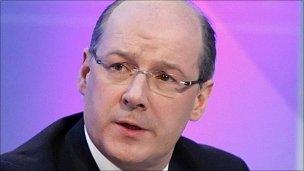
John Swinney, who also signed up to the SNP at a young age, is seen as one of the party's key thinkers and strategists.
By the time the former MP was in his early 20s, he was elected national secretary at a time of organisational turmoil, prompted by heavy SNP losses in the 1979 UK election.
Elected deputy SNP leader in December 1998, Mr Swinney was credited, along with Alex Salmond, for taking a business-friendly approach to economic policy while encouraging a broad approach to encompass "middle Scotland".
A spell as party leader came in 2000, but Mr Swinney eventually stood down, following internal criticism and the negative publicity of a leadership challenge by an unelected SNP activist.
But the SNP's 2007 election win allowed Mr Swinney - who previously worked in the financial sector - to get back to what he did best, taking on the finance brief.
Despite being in minority government, he skilfully garnered the votes he needed to pass the SNP's spending plans through a series of policy trade-offs with opposition parties.
At the same time, he budgeted to freeze council tax, despite Westminster spending cuts resulting in a reduction to the Scottish budget.
As finance secretary, Mr Swinney's post has taken on a renewed jobs focus, although his wide-ranging brief also includes responsibility for the Scottish budget, local government and public service delivery.
Kenny MacAskill - justice
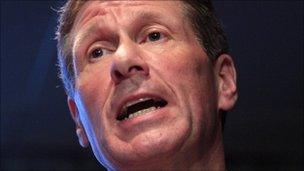
A spell in police custody may not have been the best start to the career of an MSP who would go on to take charge of Scotland's justice department - but Kenny MacAskill has more than moved on from those days.
Since becoming the Scottish government's justice secretary, following the Scottish National Party's 2007 election victory, the Edinburgh-born solicitor has never had his troubles to seek.
Dealing with crowded jails, prisoners on the run and police recruitment is one thing - but Mr MacAskill will be forever remembered over his hugely controversial decision to release from prison Abdelbaset Ali Mohmed Al Megrahi, the only man ever convicted of the Lockerbie bombing.
Kenny MacAskill, with his reputation as both a forceful and able speaker and a thoughtful and careful analyst, has never been afraid of calling a spade exactly that.
His love for the Scottish football team saw him held in custody for the duration of a Scotland v England match at Wembley in 1999, which he dismissed as a "simple misunderstanding" after being neither cautioned nor charged.
Mr MacAskill's achievements in the last parliament included boosting Scottish police officer numbers by 1,000 - a key SNP manifesto commitment - and sweeping reforms to criminal justice.
As justice secretary, his ministerial responsibilities take in a range of policy areas, from criminal law and sentencing policy to fire and rescue services and religious and faith organisations.
Mike Russell - education
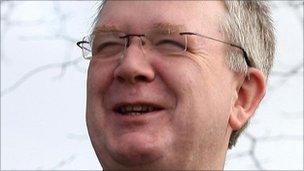
Mike Russell has been a key figure in the SNP for many years, previously serving as the party chief executive and strategist and aide to Alex Salmond.
He was first promoted to the Scottish cabinet and given the education brief after having served as a junior minister.
Elected an MSP in 1999, the former TV producer was already a high-profile figure in the party, having taken a role in running their election campaigns.
He lost his seat in 2003 and during John Swinney's time as SNP leader - a not altogether happy time for the party - Mr Russell borrowed from the fable of Tory Party's fixers in grey suits to warn that electoral reverses for the party would prompt a visit to Mr Swinney "from the men in grey kilts".
When Mr Swinney quit, Mr Russell made a pitch for the leadership - but was beaten by Alex Salmond.
Much was made at the time of Mr Russell's poor chances given his status as an unelected politician.
But, with Mr Salmond an MP at the time, his rival raised concern about the party - whose focus was now on Holyrood - being overseen by an "absentee laird".
But years later, and with much water having flowed under the bridge, Mr Russell made a return to Holyrood in the 2007 election, won by the SNP.
With the government's education policy under fire, including a pledge to cut class sizes, Mr Russell was made education secretary, moving, as one government adviser put it, at "a hundred miles an hour" as soon as he was confirmed in the post.
As education secretary, Mike Russell is responsible for school and higher education, science, training and skills, social care and Gaelic.
Richard Lochhead - environment
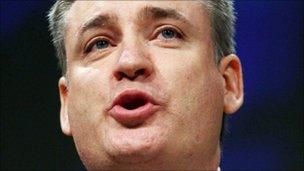
Richard Lochhead, who is closely associated with Alex Salmond, has served as environment secretary since the SNP's win in 2007.
His first major test came just a few months into the job, when the foot and mouth crisis required him to work closely with his UK counterparts on restrictions.
Mr Lochhead began courting the Scottish Fisherman's Federation, offering to involve the body more closely with government, winning its support at the next EU talks in return.
The former Dundee City Council economic development officer and former convener of the Scottish Parliament's European committee became MSP for Moray in a by-election following the death of Margaret Ewing.
It was a bitterly-fought campaign, during which Conservative candidate Mary Scanlon's claim to be the "natural successor" to the late Mrs Ewing caused offence within the SNP.
There were also brushes with Westminster ministers, when Mr Lochhead criticised plans not to devolve offshore marine control to Scotland and demanded powers to be able to block controversial plans for ship-to-ship oil transfers in the Firth of Forth.
Mr Lochhead has responsibility for agriculture, fisheries and rural development, water quality and climate change.
Alex Neil - infrastructure and capital investment
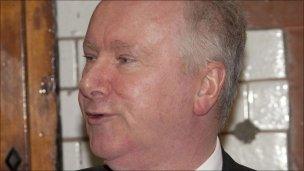
Seen as something of a parliamentary bruiser, Alex Neil's high-profile as an SNP spokesman from the backbenches led opposition parties to refer to him as "minister for Newsnight".
His efforts saw him awarded with a bona-fide ministerial role in communities and housing.
Mr Neil has been particularly outspoken on the banking crisis, and notably teamed up with Lib Dem Tavish Scott and independent MSP Margo MacDonald in a failed bid to put on hold the £12.2bn HBOS takeover.
It is all a long way removed from John Swinney's leadership of the SNP, which he secured after beating rival Mr Neil.
After Mr Swinney's resignation from the top job in 2004, Mr Neil ruled out standing again, referring to "public statements made by Alex Salmond" that he would not work with him.
Mr Salmond, who was sitting purely as an MP, told Newsnight Scotland at the time: "I would find it difficult, personally, to serve under anyone who, in my view, had been systematically undermining the leader of the SNP over the last four years."
Despite past disagreements, Mr Neil, firmly back in favour, has now been given a new cabinet post with a focus on economic recovery.
His responsibilities include Scottish Water, procurement, European funding, the Scottish Futures Trust, transport and housing and communities.
Bruce Crawford - parliamentary business and government strategy
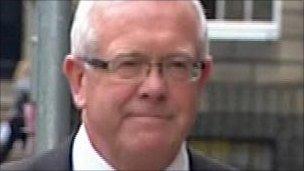
Bruce Crawford's previous experience as SNP chief whip and party Holyrood business manager stood him in good stead for the parliamentary business role he won in 2007.
With the SNP in minority government, Mr Crawford faced the unenviable task of having to work with opposition parties and win agreement when it came to conducting business at Holyrood.
It was a job in which he won praise and, with the SNP now in majority government, will presumably become considerably easier.
The former Perth and Kinross Council leader's post, has now been upgraded to cabinet level, and will take on responsibility for government strategy.
Fiona Hyslop - culture and external affairs
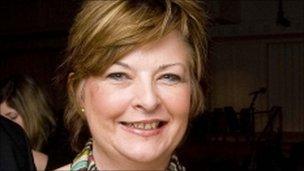
Like Bruce Crawford, Fiona Hyslop has kept her ministerial role, but now takes her place in the cabinet.
The move reflects what the SNP sees as a growing international interest in Scotland.
With much disagreement between the Holyrood and Westminster governments, Ms Hyslop also has the tough task of liasing with UK ministers.
Ms Hyslop's move marks a return to cabinet for the politician - she was SNP's first education secretary but was demoted after a period of sustained opposition party attack on Scotland's education system.
Her ministerial duties include Europe, broadcasting, architecture, Historic Scotland and lottery funding.
- Published6 November 2012
- Published11 January 2012
- Published26 November 2013
- Published11 May 2011
- Published11 May 2011